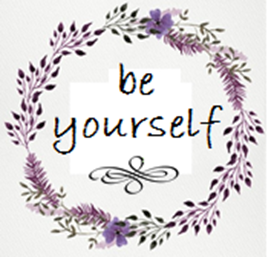If You Want a Meaningful Answer, Ask the Right Question

I recently filled out a questionnaire that was sent to me in response to an online job application I filled out. I have this thing about questions. The answers are only as useful as the questions are appropriate.
For instance, one of the questions was, “Do you pride yourself as being seen as a team player?” I’m not sure how to answer that. The more appropriate question is, “Do you pride yourself on being a team player?” See the difference? To me, being a team player is much different than being seen as a team player.
Another was, “Do you prefer to do one thing at a time?” Maybe they should ask, “Do you prefer to be assigned one thing at a time?” Again, I prefer to have several things lined up so when I’m waiting for something on the first thing, I can make myself useful and start working on another.
Even while doing that, I’m only working on one thing at a time. When you try to actually do two things at once, one or both of the tasks aren’t going to get the attention they deserve-think texting and driving. Of course, these were multiple choice answers, and none of the choices matched what I would say.
I know it seems picky, but the questions we ask have to be at least as relevant as the answers we hope to get. I know my pickiness has something to do with how my brain works–how words register in my head–as many people I know don’t seem to have the same issue with these kind of questions as I do.
In spite of that, my question is, are we asking ourselves and each other the right questions?

I remember, when I was around fifteen or sixteen, asking my mother what I should do about a situation. I don’t remember what the situation was, but her answers stuck with me. She told me to do what I thought was right. I had an idea of what I thought the right thing was, but I was unsure of myself.
I asked another question: what would you do if it were you? She gave me an answer that was very close to what I thought I should do and that answer gave me clarity and some confidence that I would choose the right thing.
Phrasing the question a little differently made all the difference.
If you’re asking yourself something like, “Am I enough?” or “Am I good enough?”, try instead asking if you’re reaching your full potential today. It seems to me that the answer to that question would be far more meaningful.
When you’re considering changing something–from the furniture in your living room to your lifestyle–ask yourself what parts of the current version are actually working for you before you start just changing everything up.
When you’re getting to know someone and they tell you something about themselves, try asking them what that means to them. If someone were to tell you that family is a high priority to them, would you assume that means the same to them as it does to you?
A high priority on family can mean anything from spending a lot time together, to them working 24/7 so you can all have the “things” you want. Don’t be afraid to ask what their answer means to them or to ask yourself what the answer to that question might mean to you.
The most important thing, whether you’ve chosen the perfect question or not, is to really listen to the answer. That’s where you’ll find out what you wanted to know, as well as finding out how good your questions are. If you don’t come away with the information you were looking for, ask a better question.
How conscious are you about the questions you ask? Is this something that you’ve thought much about before? Do not-so-relevant questions drive you mad (as they do me)? Share with us where you stand on the question of questions.
Join our community
Subscribe to get our latest content by email.


As a writer, I’m often challenged by the imprecision built into English. But of course that’s also what allows for more nuanced thinking and expression, as well as comedy, suspense and so forth. Performance art, which I also do occasionally, is no different.
In many ways, stand up comedy is all about noticing and calling out the imprecise statements/assumptions we have and doubling back on them with either clarity or even more vaguely worded thoughts that then become extremely obvious and funny.
And in the world of improv comedy, all of the best work comes from actively and closely listening to your scene partner(s), hearing the built-in weirdness of what’s being said or assumed, and then—instead of questioning the weirdness—responding in a deeply authentic way, as though of course that’s reality. It’s a kind of mindful playfulness that never gets old!
The questionnaire you talk about: “For instance, one of the questions was, “Do you pride yourself as being seen as a team player?” I’m not sure how to answer that. The more appropriate question is, “Do you pride yourself on being a team player?” See the difference? To me, being a team player is much different than being seen as a team player.”
Pure comedy gold, there! First there’s the idea of pride being wrapped up in being a team player. And then, as you point out, there’s the difference between BEING a team player or just wanting to be SEEN AS a team player.
Anyway, to answer your question(s), I think a lot about what people are saying, how I’m listening, and what questions I want to ask. I also am very … something … when people ask questions of me. I often find myself wondering 1) are they really asking this, or do they mean something else? 2) do they really want to know the answer? how much of the answer? which part matters to them? to me? etc. I don’t think any of it drives me mad. I’m often surprised, or disappointed, or confused; but I have such a deep love of language, and a tenderness toward humans in general as we fumblingly try to connect, that I mostly find it an opportunity for self-reflection or a path toward connecting more closely with others. (Failure is like that, yeah? It contains a built-in chance to rise/deepen/progress. Well, except on mindless questionnaires. LOL)
Good answer, Annie. What was the question? When I take an online survey, it doesn’t matter to me what answers I give ☑, as long as I get my free flashlight. When someone asks me, “What are you thinking?,” do they really want to hear an answer?
Annie, you could make a whole comedy routine out of that questionnaire. I often wonder who makes those up. I’d love to get paid good money to do it!
I usually hear things in such a literal way, and when I’m around people I can often make a wise crack and we can all have a laugh. What really gets me is that when I have to fill out one of these for a job knowing someone is going to use my answers to their ridiculously worded questions to decide if I’ll make a good employee or not. Boo! Hiss, hiss! At least ask me these questions in person.
I remember once at the last job I had, I was discussing something with the assistant plant manager and he said something like we need to look like we know what we’re doing. I asked him wouldn’t it be better if we just actually knew what we were doing? (That didn’t make me too popular!) Oh, the stories I could tell!
I totally agree with your beautifully worded comment. (Thank you for that…no trick questions!) My frustration comes with being asked questions where I have no chance of knowing for sure what they mean and no way to explain my answer any further. I just read an email the “questionnaire” people sent today telling me that they “decided to pursue other candidates for this position.” Although it sounded like a really interesting job, I somehow feel like I dodged a bullet!
I think, sometime, you ought to just Get Silly and answer the dumb questions with literal and hilariously honest answers. I mean, does anyone ever really get hired from those online questionnaires without having had an actual human connection with someone at the company? Some real bit of networking going on? I find it hard to believe…
You don’t get hired without seeing a human being, but the answers to those poorly worded questions (they’re multiple choice and your only option is to choose an answer or quit the process) determine if you actually get to see a human being. I remembered after I finished the questionnaire, that I had already decided I wasn’t going to look at jobs in big companies. Many of the big corporations with multiple facilities have made this a mandatory first step. They’re looking for a specific type of person. I know someone who didn’t get an interview after one of these, who actually called the company and asked what the issue was. He was told he was “too much of an independent thinker.” Can you believe that? Been there, done that. Working in a place run by remote control from somewhere a half a world away where they expect everybody to be the same just isn’t my cup of tea. I prefer to work somewhere smaller and more personable. So I’ve moved on to locally owned places, where I can get silly!